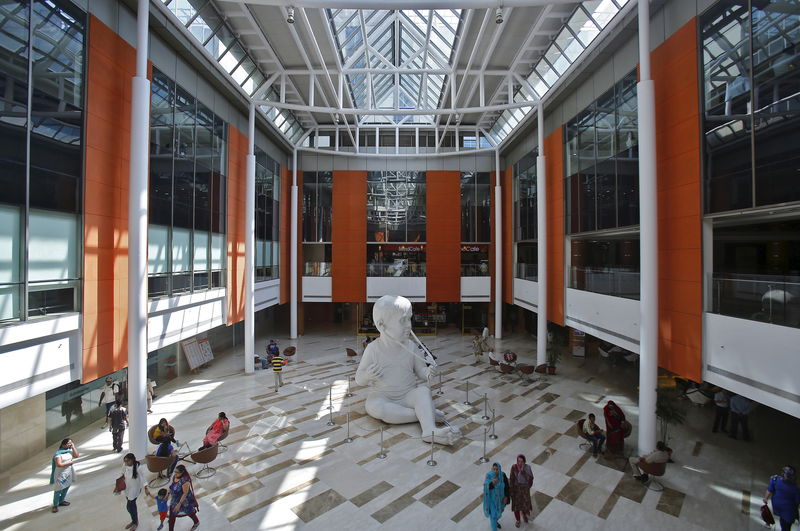By Zeba Siddiqui and Aditya Kalra
MUMBAI/NEW DELHI (Reuters) - Cinemas, Rolls-Royces and rooms so plush they could belong in a five-star hotel: private hospital operators in India are all but rolling out a red carpet to lure affluent locals and tourists to seek medical treatment at their luxe facilities.
Local hospital firms including Fortis Healthcare Ltd, Apollo Hospitals Enterprise Ltd and privately owned Medanta have built or upgraded facilities to tap the top-end of a private healthcare sector industry body ASSOCHAM estimates would grow 20 percent a year from 2013 to become a $125 billion (81 billion pounds) market in two years time.
Overseas rivals including Dubai-based Aster DM Healthcare and ABV Group are also investing in luxury healthcare in India, attracted by strong demand for quality medical care which, due to lower costs and a weaker rupee, they can offer to patients at below-international prices.
"The fact that you actually come for surgery or medical treatment would be an incidental part of the experience," ABV Group Chief Executive Advet Bhambhani told Reuters.
ABV, due to open a luxury hospital in an upscale Mumbai neighbourhood within two years, plans to provide Rolls-Royce cars to ferry its patients. It plans to invest $78 million and is also looking at refurbishing hotels, Bhambhani added.
An overcrowded and underfunded state healthcare system makes private healthcare the norm for all but the poorest of Indians.
Those wealthy enough to afford it travel to the United States or Singapore for treatment and these are the patients private hospital operators want to keep at home by offering top-notch facilities and Indian doctors who have worked or trained abroad.
At the 450-bed Fortis Memorial hospital near New Delhi, for example, there is an inhouse cinema lounge and a food court. And the rooms at Aster Medcity's 575-bed hospital in Kerala have warm lighting and hardwood floors intended to give them the feel of a luxury hotel room.
"We feel that in five years time our Aster Medcity and other hospitals that we will set up will enable us to effectively compete with Singapore," Chief Executive Harish Pillai said.
The hospital operators are also courting medical tourists: visitors who combine surgical procedures with sightseeing, or who let value for money determine where they will seek treatment.
The medical tourism sector is expected to grow to $10.3 billion in 2020, from $2.8 billion now, consultancy PwC says. A 2014 study by consultants KPMG ranks India as the third top Asian destination for medical tourists after Thailand and Singapore, with 25 percent growth a year, outstripping the 16 percent growth in Thailand.
"Medical tourists have a lot of expectations now. The quality is a very critical factor," said Prashant Hedge, group head of marketing at Wockhardt Hospitals, a unit of one of India's largest pharmaceutical firms Wockhardt Ltd.
Some 1.2 million medical tourists are expected to visit India by the end of this year, and that number is likely to double by 2020, according to PwC.
Popular treatments for these tourists include bone-marrow transplants, cardiac bypass surgery, eye surgery and hip replacements, KPMG says, and costs are below rival destinations. A hip replacement, for example, can cost $7,000 in India, about $12,000 in both Singapore and Thailand and more than $40,000 in the United States.
"A market is evolving for both high-end clinical care and the hospitality that goes with it," said Vishal Bali, Asia Head of healthcare at private equity fund TPG Growth, which is planning to invest in healthcare providers in India.

"It's just the rise of healthcare consumerism."